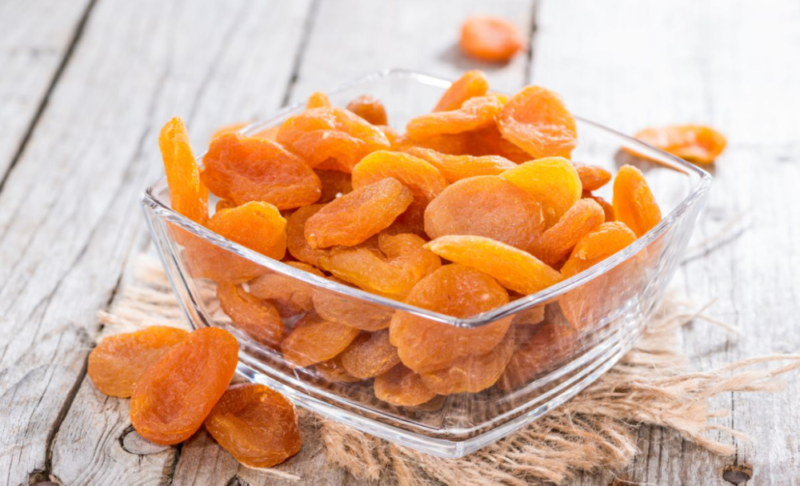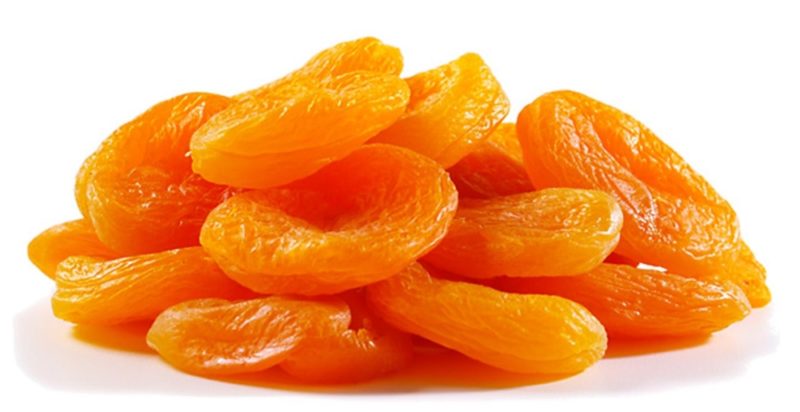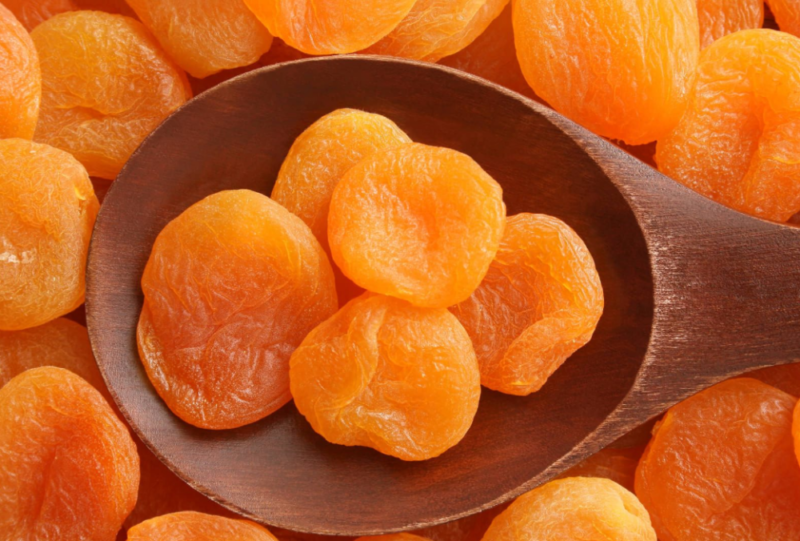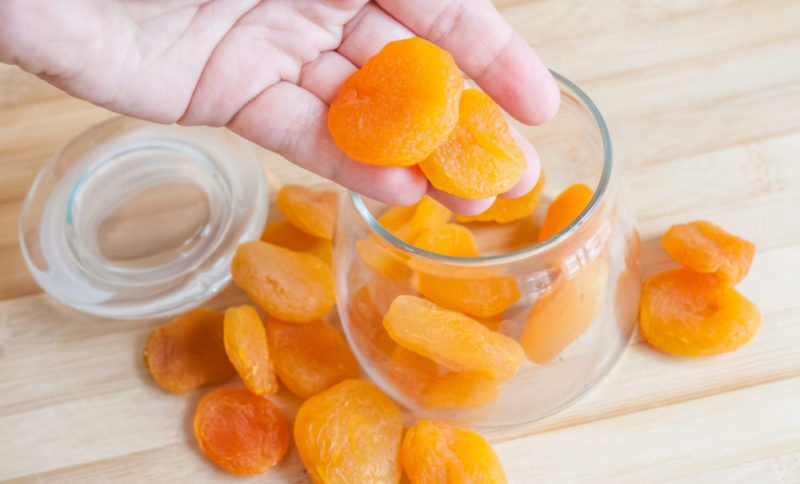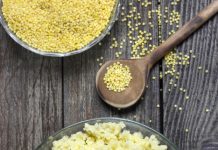Fruits are useful not only in fresh, but also in dried form, due to the removal of moisture in them increases the amount of carbohydrates. How many calories are in dried apricots, it is important to know when preparing a daily diet, diet or sports nutrition.
Material Content:
Chemical composition and nutritional value
Dried apricots are called dried halves of apricots.
The nutritional value of the product is due to the high content of vitamins and minerals.
Most of the useful elements are stored in dried fruits, subject to cooking technology. If dried apricots are prepared using sulfur oxide and other preservatives, the nutritional value for the body is markedly reduced.
To obtain a high-quality product, apricots are dried in natural conditions, in the sun, receiving 1 kg of dried apricots from 3-4 kg of fresh fruits. Dried fruits contain a small amount of protein and a lot of carbohydrates, dietary fiber, organic acids, mineral salts and vitamins.
How many calories in dried apricots, BZHU
Dried apricots contain about 5 times more calories than fresh apricots. Therefore, it is advisable for overweight people or diabetes to limit their intake of these dried fruits.
The calorie content of dried apricots (100 g) is 241 kcal.
BZHU 100 g of product:
- proteins - 3.4 g;
- fats - 0.5 g;
- carbohydrates - 63 g.
The main part of carbohydrates is represented by glucose (33 g), the remaining amount is divided approximately equally between fructose, sucrose and fiber. Common dried apricots, 1 pc. about 3 cm long, weighs 5 grams.
The content of vitamins, trace elements
Dried apricots contain a complex of vitamins and minerals that a person needs for normal life. So, 100 g of product contains 70% of the daily norm of beta-carotene and 146% of silicon.
Other vitamins and minerals as a percentage of daily requirement:
- vitamin A - 65%;
- thiamine - 1%;
- riboflavin - 3.6%;
- choline - 2.8%;
- pantothenic acid - 14%;
- pyridoxine - 8.5%;
- folates - 3.5%;
- ascorbic acid - 1%;
- alpha tocopherol - 37%;
- biotin - 2%;
- phylloquinone - 2.6%;
- vitamin PP - 16%;
- potassium - 39%;
- calcium - 9%;
- magnesium - 12%;
- sodium - 1.3%
- sulfur - 5%;
- phosphorus - 10%;
- iodine –2%;
- iron - 18%;
- cobalt - 84%;
- Manganese - 9%;
- copper - 27%;
- molybdenum - 17%;
- selenium - 4%;
- chromium - 118%.
Knowing the chemical composition of dried apricots, you can describe its beneficial effect on the body. For example, chromium, which is a lot in the product, is involved in the regulation of blood glucose levels, enhances the effects of insulin. So, the use of 100 grams of dried apricots contributes to the prevention of diabetes.
Useful properties of dried fruit for the body
Dried fruits perfectly strengthen the body, help resist infections. They contain many minerals and vitamins responsible for regulating important natural processes. Beta carotene is especially abundant in dried apricots, which is responsible for eye health and a strong immune system.
Diseases in which dried apricots will benefit:
- avitaminosis;
- weakened immunity;
- cardiovascular disorders;
- constipation
- hypertension;
- kidney and thyroid disease;
- anemia;
- liver problems.
Dried apricots are able to remove toxins from the intestines due to the large amount of fiber. With constipation, it is useful to eat several halves of dried apricots at night, soaking them first in boiling water.
Dried fruits satisfy hunger well, they are an excellent substitute for sweets and other sweets, quickly restore working capacity, give vitality and strength. Due to the high calorie content, dried apricots are not recommended to eat in large quantities to people suffering from various stages of obesity. But to normalize weight and weight loss, it is useful to spend fasting days on one dried apricots. For this, about 0.5 kg of dried fruit is divided into 5 meals. During the diet, in addition to dried apricots, only herbal tea without sugar and pure water are consumed.
Contraindications to the use of dried apricots
It is undesirable to use dried apricots to people suffering from peptic ulcer of the gastrointestinal tract. It can cause epigastric pain and bloating. With caution, you need to eat sweet dried fruits for people suffering from diabetes. A large amount of glucose in dried apricots can cause harm, cause an attack of hypoglycemia.
A product prepared using sulfur dioxide, preservatives and dyes is especially hazardous to health.
These substances give dried fruits an attractive bright yellow color and luster. But with prolonged use in food, they accumulate in the human body, causing allergies and lung diseases. The use of such dried apricots is especially dangerous for young children - rashes may appear on the skin, body temperature will rise.
When buying, you need to be interested in where the product was made, in what way. You can smell dried apricots, if you hear unpleasant extraneous odors of sulfur or rubber, it is better to refrain from acquiring them.


